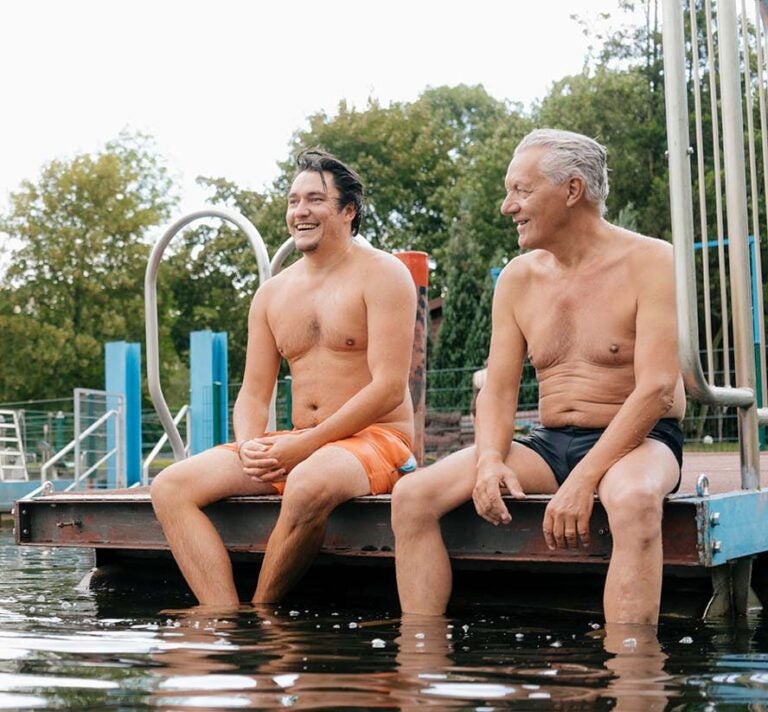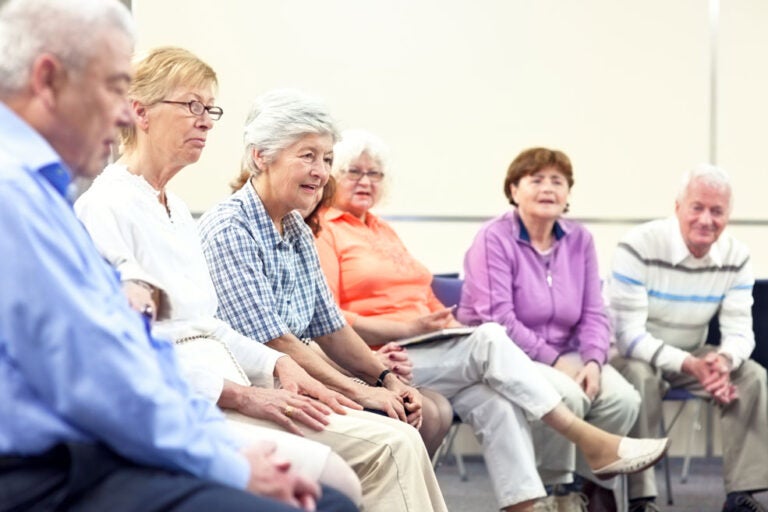When Joseph Gutheinz and his wife decided to move last year, the couple in their late sixties considered a popular over-55 community; but they didn’t stop there. They also looked at neighborhoods where most residents were at least half their age. They chose youth over peers.
“When you strive to keep your youth, you do not surround yourself with folks that have bought into society’s stereotypes of what older people should be like and do,” Gutheinz says.
He says relationships with younger people in his new community help keep them youthful. But there are other benefits to intergenerational friendships, as well. Here’s how they help and how to make more of them.
Benefits of Having Friends of Many Ages
If a digital native has ever offered to show you how to use a smartphone app or set up a streaming account, you already understand two of the best benefits of friendships that span generations: help and pride. You get the assistance you need; your younger friend feels good about being useful. It works the same way when roles are reversed, and you’re the one teaching a younger friend how to do something, too.
“Both generations have an opportunity to learn new things, gain an understanding of different perspectives, and get insights into each other’s life experiences,” says social worker Alicea Ardito.
An indirect benefit, she adds, is how it helps people break down unflattering stereotypes, especially those that smack of ageism. “Typically, ageism involves negative attitudes and beliefs about older adults, but it can go both ways. It is not uncommon to hear biased or discriminatory opinions about younger people as well,” she says. Cross-generational relationships can challenge these beliefs when you get to know someone older or younger on a deeper level, she adds.
Friendships with younger people can also help retirees find purpose and meaning. “Retired people have a wealth of life experience and wisdom to share. As they age, they need to feel useful, purposeful, and productive. One way to fill this need is to have meaningful relationships with younger people,” says Rena Yudkowsky, a memory coach and geriatric social worker.
These types of connections also help reduce isolation in retirement. “There is a large segment of people now called ‘solo-agers’ who don’t have children or family at all, or they may have family members who cannot help. I see for myself and well as friends, colleagues, and clients that having friends of a variety of ages helps us feel connected and engaged,” says retirement coach Dorian Mintzer.
How to Foster Friendships Outside Your Generation
For many, friendships across age groups happen organically in multi-generational neighborhoods, as is the case with Gutheinz. “People are re-thinking the importance of ‘neighborhood,’ where there are people of different ages and where people can help each other,” says Mintzer.
Sometimes, all it takes to create friendships with younger people is to volunteer, take a class, join a club related to a hobby, or support an issue or cause that’s important to you.
“Certain important social issues such as climate change, systemic racism, social justice, and others present important opportunities for bringing people of different ages together to work on shared projects to benefit communitie and our planet,” Mintzer says.
Structured programs can help facilitate relationships across the generations, too. Gen2Gen helps connect older adults with young people in ways that solve problems and bridge divides, while Eldera links kids with vetted, older mentors virtually.
In addition, many communities offer adult education programs where anybody, including retirees, can teach others how to do something they know a lot about. Consider applying for a part-time adjunct instructor position at a local college or university, too. You’ll be able to share your knowledge while supplementing your retirement income.
Some make these important connections by sharing a home with someone younger, whether a grandchild, a family friend or a college student. “Renting to a student can help the older person feel less isolated and disconnected, and often helps the student feel part of a ‘family’ while far from home,” says Mintzer.
Yudkowsky recommends being clear about expectations with anyone sharing your home, especially if one side is expecting some type of help. Make sure it’s a good fit, too. “It can be mutually beneficial if the styles and personalities are compatible,” she says.
Ardito says creating cross-generational bonds requires challenging your biases and stereotypes about age and aging. “As a society, we can view intergenerational friendships as normal, desirable, and healthy because they are,” she adds.
Seniority is published by Finance of America Reverse LLC. The views expressed in this publication are those of the author alone and do not necessarily reflect the views and opinions of Finance of America Companies. This article is intended for general informational and educational purposes only and should not be construed as financial or tax advice. For more information about whether a reverse mortgage may be right for you, you should consult an independent financial advisor. For tax advice, please consult a tax professional.




